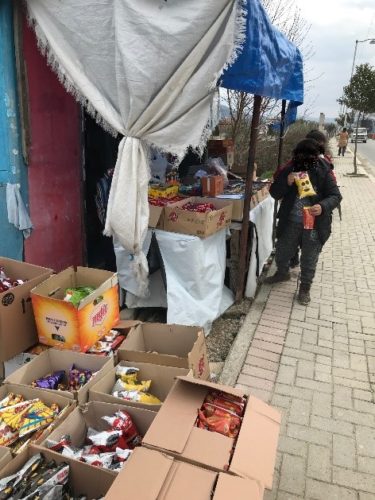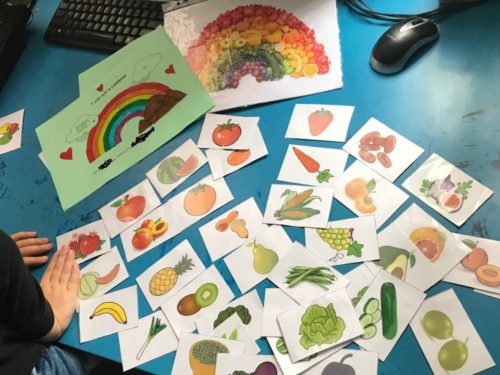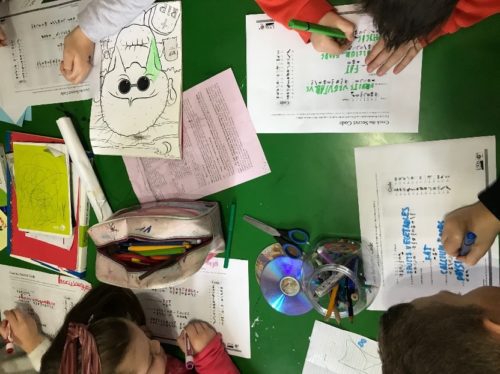Külli, EU Aid Volunteers in Albania
My mission began at the end of January in Tirana, the capital of Albania. As a food and nutrition professional, I was very happy to get this position in this Mediterranean country! The Mediterranean has been a rich source of cultures, ingredients, flavors and tastes since humans began sailing along its ancient shores. The fusion of tastes and health benefits of the available raw materials has made the diet of this region one of the most sustainable on the planet. The Mediterranean diet, rich in foods such as fruits, vegetables, beans, fish, and olive oil, is often considered the benchmark for healthy and ecologically sustainable eating. But according to a report by the Food and Agriculture Organization of the United Nations, it is in decline in the very region where it originated.

The Mediterranean region is going through a “nutritional transition” in which problems of undernourishment coexist with overweight, obesity, and diet-related chronic diseases. Population growth, urbanization, and increasing wealth and living standards have contributed to the “westernization of food consumption patterns” in the region, notably through the shift to higher-fat animal products and processed foods.
Unfortunately, in terms of child health, Albania faces the double burden of malnutrition. While undernourishment affects remote rural areas, the prevalence of overweight and obesity is high among children and adults in the capital Tirana. Major improvements in health care and nutrition education efforts are needed to reduce the prevalence of undernutrition while preventing the transition to obesity and chronic disease.

It is said that there is a severe lack of fruits and vegetables in the diet and too much sugar in the diet. In addition, many energy-rich but non-nutritious snacks are consumed. A key objective is to educate on the need to reduce the amount of sugar and salt used in the local diet. And to increase the consumption of fruits and vegetables. There appears to be little public awareness of these needs.
So far, my main activities have been consulting with children and parents in daycare centers and centers for people with special healthy eating needs.
Children and teenagers need good nutrition to grow, develop, be protected from disease, and have the energy to study, learn, and be physically active. Poor nutrition is one of the most important risk factors for chronic disease.

Teaching children about nutrition and helping them learn how to make healthy food choices is a great way to prevent childhood obesity and help children stay healthy as they grow up. Prepare half your plate of fruits and vegetables! Eat 5 servings of fruits and vegetables every day! Here are the main elements of the message. What are some fun ways to teach children to eat more fruits and vegetables? A few examples are here.
“I can eat a rainbow” – Fruits and vegetables are important in our diet. They contain various concentrations and combinations of phytochemicals that play a role in maintaining the health of our bodies. Some can strengthen our immune system, while others can help us develop and maintain strong bones and teeth. Phytochemicals also give fruits and vegetables a spectrum of bright colors. Eating a “rainbow” of fruits and vegetables is therefore a good way to ensure that we get all the phytochemicals we need to stay healthy. All of the children coloured their rainbows, wrote down the names of the corresponding fruits and vegetables, and promised to eat them. Children can set personal goals related to their own consumption of fruits and vegetables, such as increasing the amount, variety, and/or testing new products.
“Crack the code” – Through a variety of activities, it can be more effective to spread the message of healthy eating. With the positive emotion of the achievement, messages that are mundane and sometimes even tedious for children can be more easily “absorbed”. We did the exercise “breaking the code” with healthy eating messages.
Good health and nutrition are essential for an individual’s well-being and important for national development.
Et si c'était toi ?
Rendez-vous en réunion d'information !
Tous les mecredis à 11h en ligne
